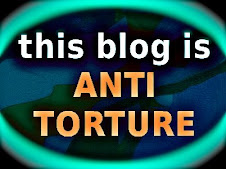
DAVID ASPER, LLM, NATIONAL POST
In 2008, Stephane Dion, Jack Layton and Gilles Duceppe plotted to create Ottawa's first coalition government since the First World War era. The trio failed. But in the process, they reminded Canadians of the grey zones in our parliamentary customs and procedures. In the wake of this crisis, four Canadian thinkers debate the strength of our constitutional system. History provides us with various examples whereby those who seek power to achieve dubious objectives have managed to do so legally and within the rule of law.
Consider the following two scenarios: - A minority government is in power, as is the case currently in Canada. Early in the life of this government, the governor-general's term expires and the prime minister exercises his right to appoint a new one. He chooses someone who happens to be a close confidante, a person with whom he shares a common view about the direction of the country.
The government then embarks upon a legislative agenda that the opposition parties oppose and intend to defeat. The PM and G-G respond by secretly colluding to thwart the will of Parliament. Even though the House is required to meet at least once per year pursuant to Section 5 of the Charter, under the collusion agreement the G-G has agreed that he will not call an election, or call on the opposition to form a government, even if the opposition has defeated the minority on the Throne Speech or any other confidence measure.
ADAM DODEK, PROFESSOR OF LAW, UNIVERSITY OF OTTAWA LAW SCHOOL
Both the PM and the G-G are clearly acting unconstitutionally. It is not clear from the hypothetical whether the House is actually meeting once per year as required by Section 5 of the Charter. However, that requirement doesn't help us much anyway, because all it literally requires is for the members of the House to convene on one day each year. The combination of an abusive PM and a patsy GG could prorogue the House for the other 364 days.
This is the crux of the problem. What do we do when we have a GG who refuses to exercise reserve powers to defend our democratic system of responsible government? Because only the PM can ask the Queen to remove the G-G, we are in a vicious circle.
DAVID ASPER, LLM, NATIONAL POST
At the same time, the government continues its negative political messaging against its opponents. This has its intended effect: Every public opinion poll shows that attitudes run 2:1 against the coalition. Economic conditions worsen to the point where a repeat of the Great Depression is seen as a realistic possibility, and the government declares that the political instability that would be ushered in by the separatist-supported coalition constitutes a threat to the basic livelihoods of Canadians.
The question remains: What could anyone do about it under existing Canadian law? Is there a legal remedy, even on a hypothetical basis, such as seeking relief from the courts? Or are the PM and G-G immune-- assuming they would abide by a court order even if one were issued?
LORNE SOSSIN, PROFESSOR OF LAW, UNIVERSITY OF TORONTO LAW SCHOOL
In our case, with a Supreme Court that remains credibly non-partisan, what powers do they have? For a government on the ropes, one possibility is the reference power. The government could claim the need to suspend Parliament, replace the G-G or take other steps justified by extraordinary circumstances, and seek the court's view on whether such action violates the Constitution.This occurred when prime minister Pierre Trudeau sought to patriate the Constitution unilaterally in 1981, and again in 1998 when the Chretien government wanted to ward off the possibility of Quebec seeking to secede unilaterally.
However, at some point, a strong judicial declaration that the government was acting in an unconstitutional fashion will have bite -- not just in the media and the court of public opinion, but elsewhere in the machinery of government itself. For example, one of the grounds on which public servants are justified in not taking direction from their political masters is where that action is unlawful.
For the opposition or others in society, the courts may be a place to seek a declaration that the government is acting in violation of constitutional conventions or other obligations. A declaratory remedy is just that -- the court states that a violation has occurred but does nothing else to remedy it. Again, the ripple effects of such an order would usually be enough.
ADAM DODEK
The problem with the reference power is of course that it can only be invoked by the government; and in David's scenarios, it is unlikely that the government would do so. However, in the case where a PM or G-G is clearly acting in violation of the Charter (Section 5 for instance), I think that an MP, or perhaps any citizen, would be able to go to court to seek a declaration that the government is acting unconstitutionally, and the court could also make an order under Section 24 of the Charter to provide "such remedy as the court considers appropriate and just in the circumstances."
The extent to which a court would be willing to step in is very much dependent on its view of its own legitimacy and the nature of the crisis.
Full Articles at:
http://www.nationalpost.com/news/canada/story.html?id=1133082&p=1
*



